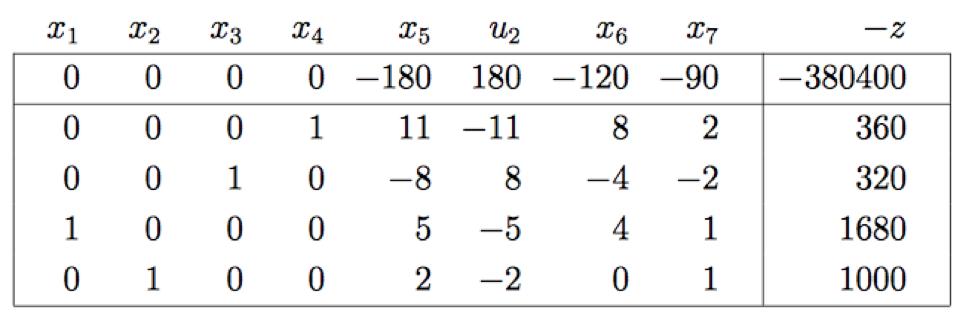Stark Industries will focus their next month of production on three related product lines. The per-unit profits on the lines are $120, $150 and $90.

Stark Industries will focus their next month of production on three related product lines. The per-unit profits on the lines are $120, $150 and $90. The first line has been the most popular, so they plan to make at least as many of it as they make of the other two combined. They want to make a total of at least 3,000 items. The respective lines require 1, 0.5 and 0.75 hours of production time. In the month they anticipate having 2,420 hours of production available. A special component is in short supply: they have access to only 7,000. Lines 1 and 3 require two of the component: line 2 requires three. Assuming that they can sell all they make, how many of each product line should they make to maximize their profit?
- If Stark could find another source of their special component, how much should they pay for it?
- Their sales manager wants to slightly increase the number of items made. Is that a good idea?
- What range of production hours would result in the same optimal basis, and what is the value of an additional hour of production?
- What would the new basic solution be if 75 fewer components were available?
X1 0 0 0 1 0 x2 0 0 0 0 1 I3 0 0 1 0 0 C4 X5 Uz 0 -180 180 1 -11 0 0 0 11 -8 5 2 8 -5 -2 x6 Xx7 120 -90 8 2 -4 -2 1 1 4 0 -2 -380400 360 320 1680 1000
Step by Step Solution
3.39 Rating (158 Votes )
There are 3 Steps involved in it
Step: 1
Solution 1 O Given th...
See step-by-step solutions with expert insights and AI powered tools for academic success
Step: 2

Step: 3

Ace Your Homework with AI
Get the answers you need in no time with our AI-driven, step-by-step assistance
Get Started


